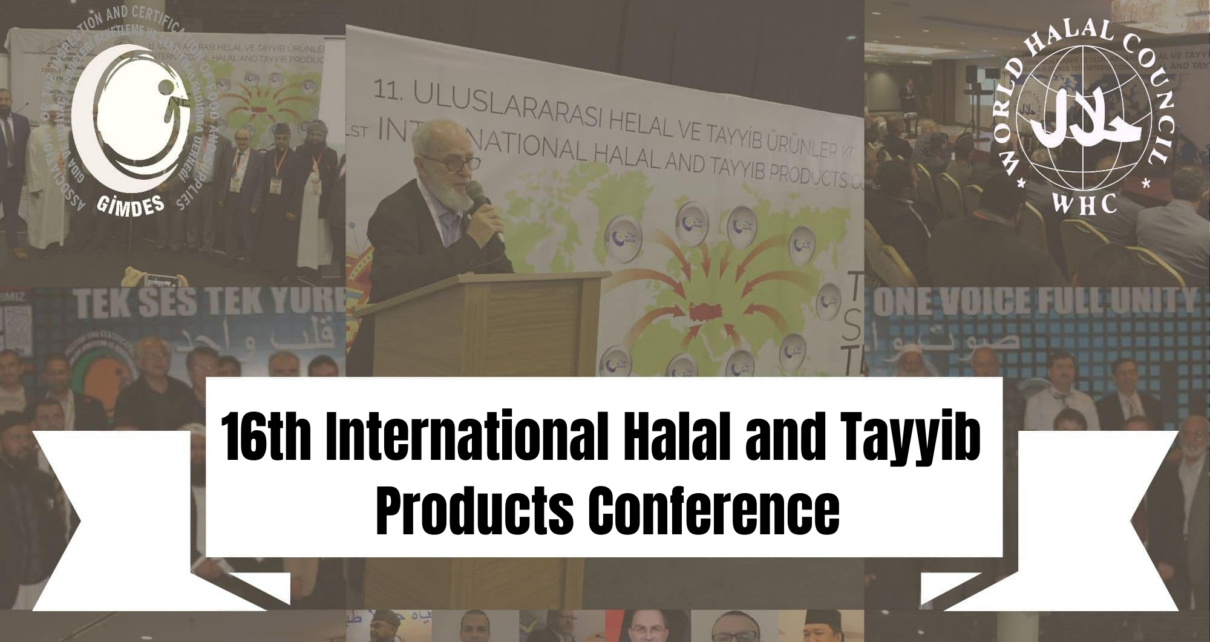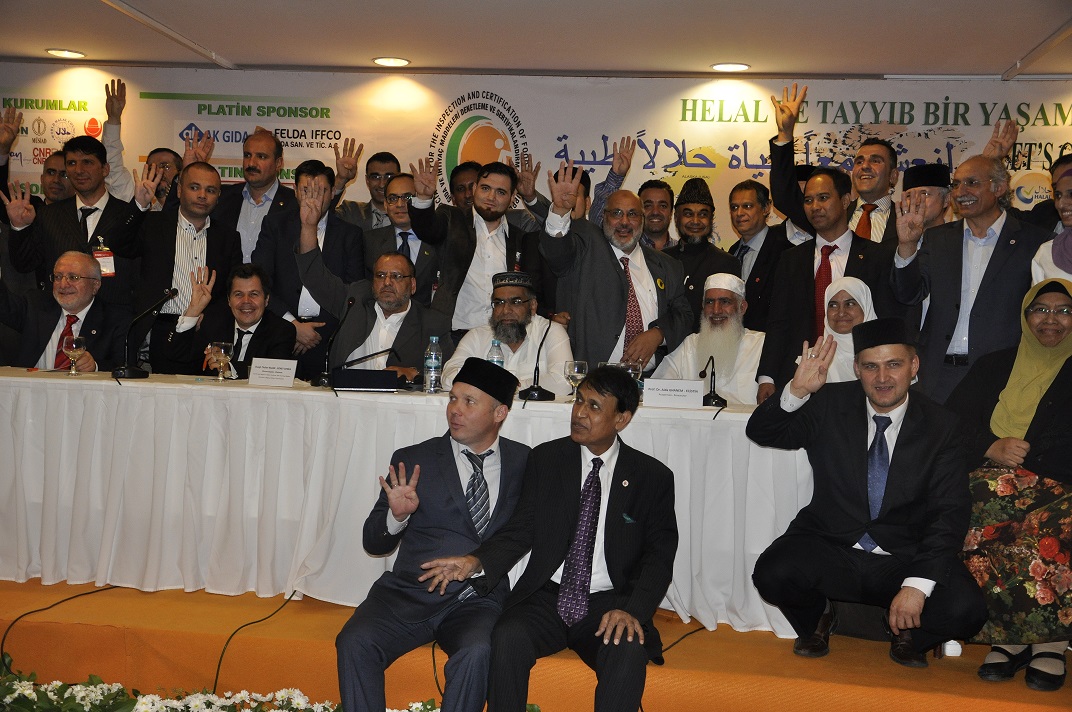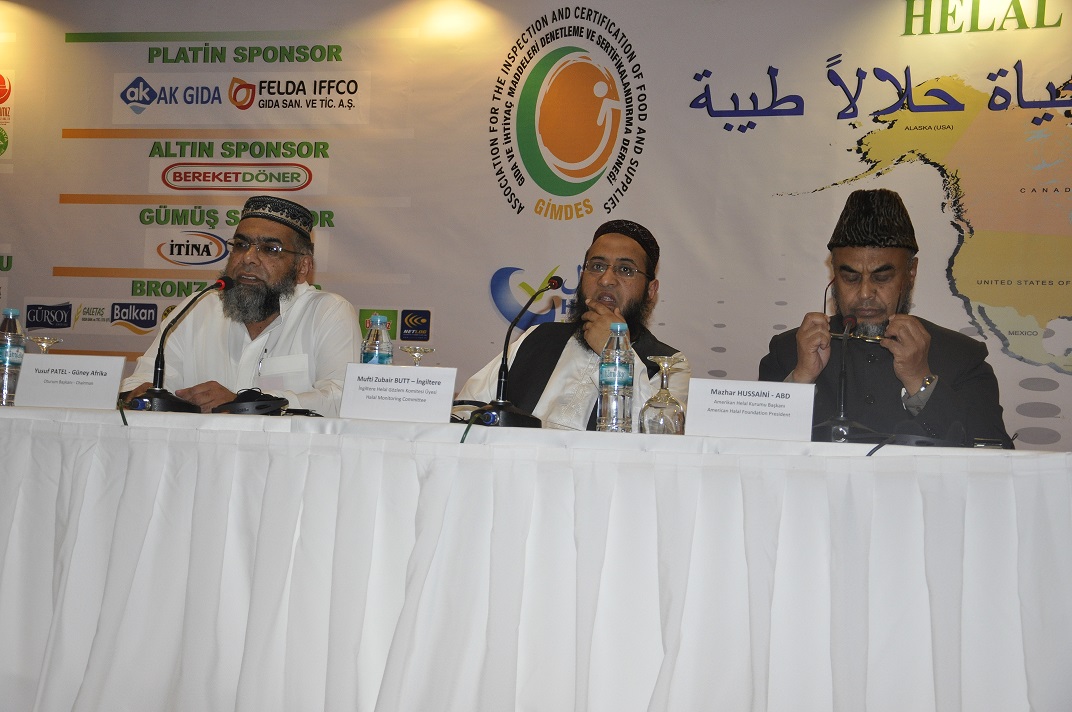Dr. Hüseyin BÜYÜKÖZER
Our International GIMDES Halal and Tayyib Products Conference, which will take place online on 3-4 September 2024, consists of seven different sessions. The topics to be covered in the sessions and their explanations are presented below for your information.
1- “Exploring the Global Halal Market: Opportunities and Trends in the Halal Industry”
“Exploring the Global Halal Market: Opportunities and Trends in the Halal Industry” is a comprehensive study of the growing importance of the halal market worldwide. The research highlights opportunities and trends in the halal sector, covering sectors such as food and beverage, pharmaceuticals, cosmetics, tourism, and finance. In this regard, it is emphasized that the global Muslim population has increased significantly and the demand for halal products and services has increased. It is stated that Halal products and services, with an estimated market value exceeding trillions of dollars, increase the potential of businesses to benefit from this market by developing halal certified products and collaborating across borders. However, the importance of adherence to quality control, labelling and halal certification standards is also emphasized for businesses aiming to be successful in the global halal market.
2- “Halal Finance: Exploring Islamic Banking and Investment Opportunities and Islamic Perspective on Economy and Interest-Free Finance System”
The topic titled “Halal Finance: Exploring Islamic Banking and Investment Opportunities” is a comprehensive review of Islamic banking and investment principles and practices. This topic examines the concept of halal finance, which adheres to Islamic principles and prohibits the charging or payment of interest (riba). In addition to various investment opportunities in the sector, attention is also drawn to the global growth and potential of Islamic finance. Among the factors that make Islamic finance an attractive option for individuals and institutions seeking alternative financial systems, the importance of ethical and socially responsible investment practices in Islamic finance is emphasized. Examining the principles of Islam that guide economic activities, this study emphasizes the prohibition of interest (riba) and the promotion of equity, justice, and socio-economic prosperity. The concept of an interest-free financial system based on profit-sharing and risk-sharing arrangements is also explained. The advantages of an interest-free system, such as reducing wealth inequality and placing more emphasis on real economic activities, are underlined. It also discusses the potential challenges and opportunities associated with implementing such a system in today’s economies. Within the scope of these studies, the principle of “Qard al-Hasan” is discussed, especially in Islamic societies, which provides the needy person who has debts with the amount that will meet his needs, without interest and only to gain the consent of Allah, so that he can stay away from haram things and not get involved in haram things.
3- “Sustainable Halal: Promoting Ethical Practices in the Halal Industry”
“Sustainable Halal: Promoting Ethical Practices in the Halal Sector” is a topic that focuses on promoting ethical practices in the halal industry and particularly emphasizes sustainability. This issue highlights the importance of aligning halal practices with environmental protection, social responsibility, and ethical business standards. The study examines the concept of sustainable halal and discusses the integration of sustainable practices throughout the supply chain, from raw material supply to production, distribution, and waste management. The study emphasizes that halal businesses must adopt environmentally friendly and socially responsible practices to overcome environmental challenges and meet the growing demand for ethically produced halal products. In addition, the study also highlights the potential benefits of sustainable halal, such as increasing brand reputation, increasing consumer confidence and ensuring the viability of the business in the long term.
4- “Halal Medicines: Meeting the Health Needs of Halal Consumers”
The study titled “Halal Medicines: Meeting the Health Needs of Halal Consumers” focuses on the development and availability of halal medicines that will meet the health needs of halal-conscious consumers. This study highlights the importance of producing medicines in accordance with halal standards, which includes the absence of haram substances or ingredients derived from non-halal sources. The challenges faced by the pharmaceutical industry in meeting these requirements are discussed and the strategies and advances developed to provide halal certified medicines are examined. The study highlights the importance of halal medicines in meeting the health needs of the Muslim population, promoting inclusivity, and building trust among halal consumers. It also highlights potential market opportunities for pharmaceutical companies investing in halal drug production and certification.
5- “Validity of Halal Conditions in Cosmetics”
“Verification of Halal Requirements for Cosmetics” is a topic that focuses on ensuring that cosmetics comply with halal requirements, emphasizing the importance of verifying and approving the halal status of cosmetic products, which includes evaluating the ingredients used, production processes and packaging. It discusses the challenges faced by the cosmetics industry in meeting halal requirements and explores existing methods and frameworks for verifying the halal status of cosmetics. In this context, the importance of halal cosmetics certification in meeting the needs of halal-conscious consumers and creating trust in the market is emphasized. It also highlights potential market benefits for cosmetics companies investing in halal certification and validation, including access to a growing consumer base and increased brand reputation among halal consumers.
6- “Halal – Tayyib and Kafalat (Bailment) Concepts”
The principle of “Halalan Tayyiban” is a concept derived from a word in Ayat 168 of Surah Baqarah of the Quran al-Kareem. The verse advises the Muslim consumer to choose good food to consume and not to make the halal criterion the sole focus. GİMDES applies this principle in its certification studies and clearly proves the applicability of this principle in its entirety as an Islamic method in today’s business life.
7- “Halal Product Trade Between Non-Muslim and Islamic Countries”
“Halal Product Trade Between Non-Muslim and Islamic Countries” is a topic that focuses on trade dynamics and opportunities regarding halal products between non-Muslim and Islamic countries. The study emphasizes that the global demand for halal products has increased due to the increasing Muslim population and the rising awareness of halal standards among non-Muslim consumers, and the challenges and potential benefits of halal product trade are discussed. It examines the challenges and potential benefits of trade between non-Muslim and Islamic countries in the halal market, highlighting the importance of understanding the demand for halal products. Additionally, the potential for economic growth, employment creation and cultural change that could result from increased commercial cooperation in the halal sector is also discussed.
Our speakers who are experts in domestic and international subjects who will talk about these issues will be published soon.





